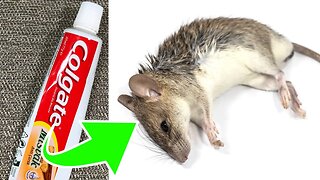Surprising Uses of Hydrogen Peroxide for Plants
Hydrogen peroxide has long been used as a disinfectant and bleaching agent, but did you know you can use hydrogen peroxide for plants?
When you hear the word peroxide, the first thing that comes to mind is it's usefulness when it comes to cleaning and disinfecting, right? There is, however, a little-known use for this product—in the garden.
Whether it's applied directly to the soil or to the plant, peroxide can both kill and prevent the appearance of microorganisms that may harm your plants.
It's main benefit maybe its ability to stimulate the plant’s growth. The oxygen found in peroxide helps the plants absorb the nutrients in the soil better.
With the help of peroxide, plants tend to grow quickly and remain healthy.
In order to use this in your garden, the best kind is 3% hydrogen peroxide, one of the most common types of peroxide.
You may be wondering if using it in your garden will hurt your plants. The answer is yes—anything can be dangerous when used excessively.
In order to obtain all of peroxide's benefits, you need to dilute it in water.
If you want to help your plants grow quickly and protect them from fungi and other microorganisms, here's what you do:
Mix 1 teaspoon of 3% hydrogen peroxide with 1 cup of water and pour the solution into a spray bottle. Spray it directly onto your plants.
If the plant has already been affected by fungi, or if it's roots are damaged, increase the amount of peroxide to 1 tablespoon.
Not only is the solution easy and cheap, you can store it to use it later. Store it in a dark cool place, because the sunlight can reduce its effectiveness.
----------------------------------------
Facebook: https://bit.ly/38BWbw3
Pinterest: https://bit.ly/2Irvwa6
Disclaimer: The materials and the information contained on Natural Cures channel are provided for general and educational purposes only and do not constitute any legal, medical or other professional advice on any subject matter. These statements have not been evaluated by the FDA and are not intended to diagnose, treat or cure any disease. Always seek the advice of your physician or other qualified health provider prior to starting any new diet or treatment and with any questions you may have regarding a medical condition. If you have or suspect that you have a medical problem, promptly contact your health care provider.
-
 3:40
3:40
Natural Cures
6 months ago $0.55 earnedToothpaste Is All You Need To Keep Mice Away From Your House
2.01K1 -
 1:12:52
1:12:52
Russell Brand
4 hours agoWOW! CNN trying to SHUT DOWN Tucker Carlson’s Tour - Stay Free 388
70K116 -
 LIVE
LIVE
vivafrei
3 hours agoNever Let a (Manufactured) Crisis Go To Waste! Biden, Uvalde, IDF & MORE!
3,884 watching -
 LIVE
LIVE
The Charlie Kirk Show
2 hours agoJuly Surprise + Boomers Voting Biden? | Gor, Sen. Tuberville, Baris, Plume | 6.17.24
9,773 watching -
 LIVE
LIVE
TheAlecLaceShow
4 hours agoGuests: Alex Jones | Alex Stein | Biden Deepfakes | Chicago Shootings | The Alec Lace Show
463 watching -
 27:17
27:17
Neil
2 hours agoTheir Sinister PLAN To Eliminate ALL Meat Was Just Released!
3.21K3 -
 1:19:33
1:19:33
Spittin' Chiclets
4 hours agoSpittin’ Chiclets Episode 508: Game 4 Recap
15.7K5 -
 58:45
58:45
The Dan Bongino Show
4 hours agoYes! This Is How We Fight Back (Ep. 2273) - 06/18/2024
376K1.36K -
 1:45:18
1:45:18
Steven Crowder
5 hours ago🔴 Magical Mystery Faith Healing with Tumor Toucher Cori Bush
213K291 -
 1:10:59
1:10:59
Benny Johnson
3 hours agoIT'S HAPPENING: The PLOT To REPLACE Joe Biden Has Been Put Into ACTION | DNC In Panic As Trump ROLLS
52.3K79